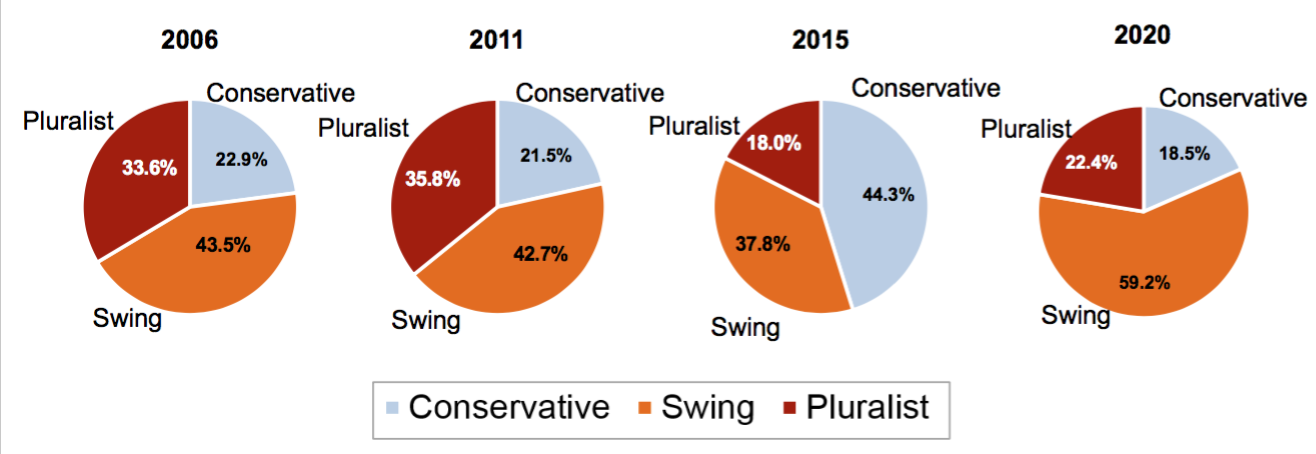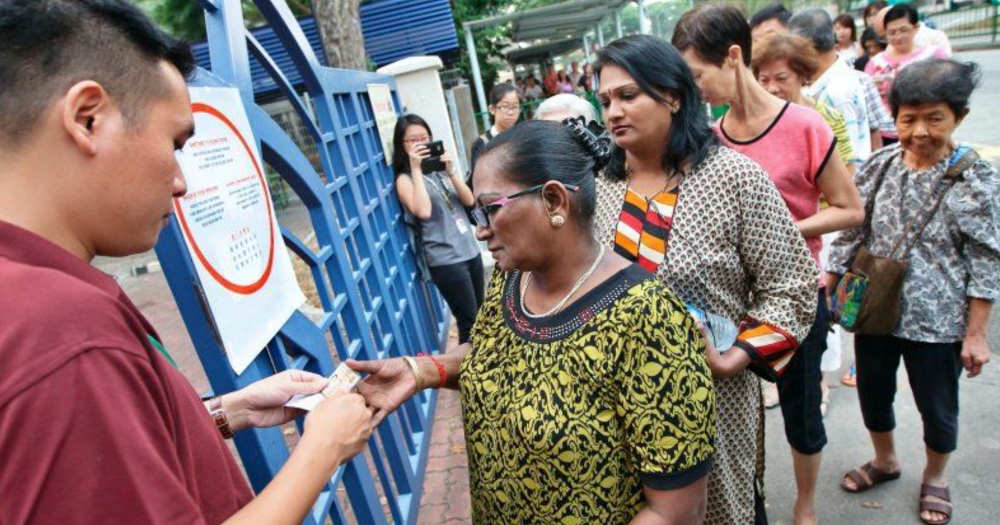Opposition parties in Singapore might be here to stay, said one panellist at a forum held by the Institute of Policy Studies (IPS) on Oct. 1, which discussed the findings of an IPS Post-Election Survey.
Political scientist and senior research fellow at the National University of Singapore's East Asian Institute Lam Peng Er weighed in with his thoughts on the results of GE2020, and suggested that opposition parties could stand to gain in the future if current political trends among the electorate persist.
How was the survey conducted?
The IPS survey is the fourth post-election survey conducted since the 2006 General Election, and sought to find answers to questions such as:
- If the management of Covid-19 mattered,
- If support for political pluralism increased since 2015, and whether it is related to social class,
- Which segments might have affected overall change in support for the People's Action Party and Workers' Party,
- How important online campaigning was compared to other forms of communication, and
- If there is a difference in views among those who responded to the survey on landline, mobile or online.
Results from over 4,000 respondents above the age of 21 were compiled from between July 11 to Aug. 21.
These surveys were conducted via landline (2,001 citizens), mobile phone (1,002 citizens), and the internet (1,024 citizens).
A "new normal election"
On the topic of the previous election, Lam described GE2020 as a "new normal election", considering the changes made to the typical election process due to the Covid-19 pandemic.
Despite the ruling PAP capturing the majority of the vote share, he stated that the Workers' Party had made "modest gains", as well as the Singapore Democratic Party.
Lam also highlighted the rising importance of social media as a channel for political communication.
This year, numerous parties turned to e-rallies due to the circuit breaker, with live speeches, tea sessions and talks posted to Facebook and Instagram.
Lam's statements were echoed by the survey findings, with more respondents ranking the internet as the most important mode of communication — Facebook especially, was the platform respondents found key in providing material that shaped their vote.
Issues of concern in GE2020
The survey revealed that this year, the management of Covid-19 ranked relatively high among various concerns.
This was particularly so for those aged 55 and above.
Having an efficient government, as well as fair government policies, were two things that respondents believed were the most important.
In response to this, Lam highlighted that although Covid-19 management was a priority among all respondents, the pandemic will be a "non-issue" in the next election.
However, topics like efficiency and fairness will still remain salient in the future.
More people in 2020 also believe that the cost of living, jobs situation and the need for different views in Parliament were more important, as compared to the number of people who believed so in 2015.
More people want more voices in Parliament
One section of the survey also asked respondents five questions, such as whether they believe in having checks and balances in Parliament, the need for different views, whether there is a need to change the election system, and whether the whole election system is fair to all political parties.
Respondents were then clustered into three groups based on their answers — pluralists (those who agree that the election system needs to be changed and a diversity of voices is required in Parliament), conservatives (those who disagree with the previous statements mentioned), and swing voters (those who responded with an eclectic mix of answers).
This year, the proportion of conservatives actually dropped by 25.8 per cent, while the proportion of pluralists and swing voters increased by 4.4 per cent and 21.4 per cent respectively.

Pluralists are typically made up of younger respondents with higher socio-economic statuses.
Interestingly enough, the rise in pluralists was contributed by respondents in a different socio-economic class as compared to 2015.
In 2020, more respondents from low-income households and those with only JC or ITE educational qualifications, wanted more voices in Parliament.
Credibility of parties
The survey also assessed how credible Singaporeans found the six political parties — People’s Action Party, Workers’ Party, Progress Singapore Party, Singapore Democratic Party, National Solidarity Party and People’s Voice.
These parties were selected as they were the six that received the highest number of votes in GE2020.
Findings revealed that there was a 6 per cent drop in the number of people who "agreed" that the PAP was credible, as compared to 2015.
There was also a 16 per cent increase in the number of people who "strongly agreed" and "agreed" that the WP was credible.
This increase was observed most prominently in those aged 30 to 34 and among seniors.
The PAP was most credible especially for those aged 55 and above, and with PSLE-level education or lower.
The WP and PSP were most credible with those 39 and below, with education levels that were secondary or above, and first-time voters.
Overall though, the PAP was still ranked as the most credible party by respondents.
However, Lam added that despite this, the PAP has "no room for complacency".
The credibility of other parties are likely to increase during the next election, and if the WP continues working hard on the ground, and if the trends among the electorate such as the increase in pluralists persists, then "it is not inconceivable that the WP will win another SMC or GRC in the next election".
"I won't rule it out," Lam said. "Singaporean voters are very performance-based, and its really up to the WP and how they perform at the grassroots level."
Honesty is the best trait
Lam subsequently tied the perceived credibility of political parties to how their candidates are viewed by the public.
The survey found that most people believe that honesty is the most crucial trait a candidate should possess, followed by fairness.
This "boils down to the issue of elitism and privileges", Lam said.
He then mentioned the prominent incident involving PAP candidate Ivan Lim, whose announcement of his candidature prompted numerous members of the public to surface allegations of his abuse of power.
Similarly, Lam pointed out the hoo-ha surrounding WP's Raeesah Khan, where controversial race-related social media posts were unveiled during the campaigning period.
One-and-a-half party system?
Additionally, Lam added that with social media gaining traction, more pluralist mindsets and the increasing credibility of the opposition parties, he anticipated that the PAP would capture a lower vote share and possibly parliamentary seats in the next election.
Lam even mentioned the possibility of a "one-and-a-half party system within the next decade or two".
Such a system was seen in Japan from 1955 to 1993, where the Liberal Democratic Party successively held majority government but without supermajority (two-thirds of the seats) to amend the Constitution.
Lam then raised the question of whether the WP would become the second most prominent party in Parliament, but would not displace the ruling PAP.
"If such a Japanese scenario would emerge, then it will be a Goldilocks outcome for majority of voters. [This means that] the PAP remain[s] the perennial party in power for political stability and predictability, while the WP will be a considerable opposition providing checks and balances."
Totally unrelated but follow and listen to our podcast here
Top photo from Suhaimi Abdullah via Getty Images
If you like what you read, follow us on Facebook, Instagram, Twitter and Telegram to get the latest updates.
